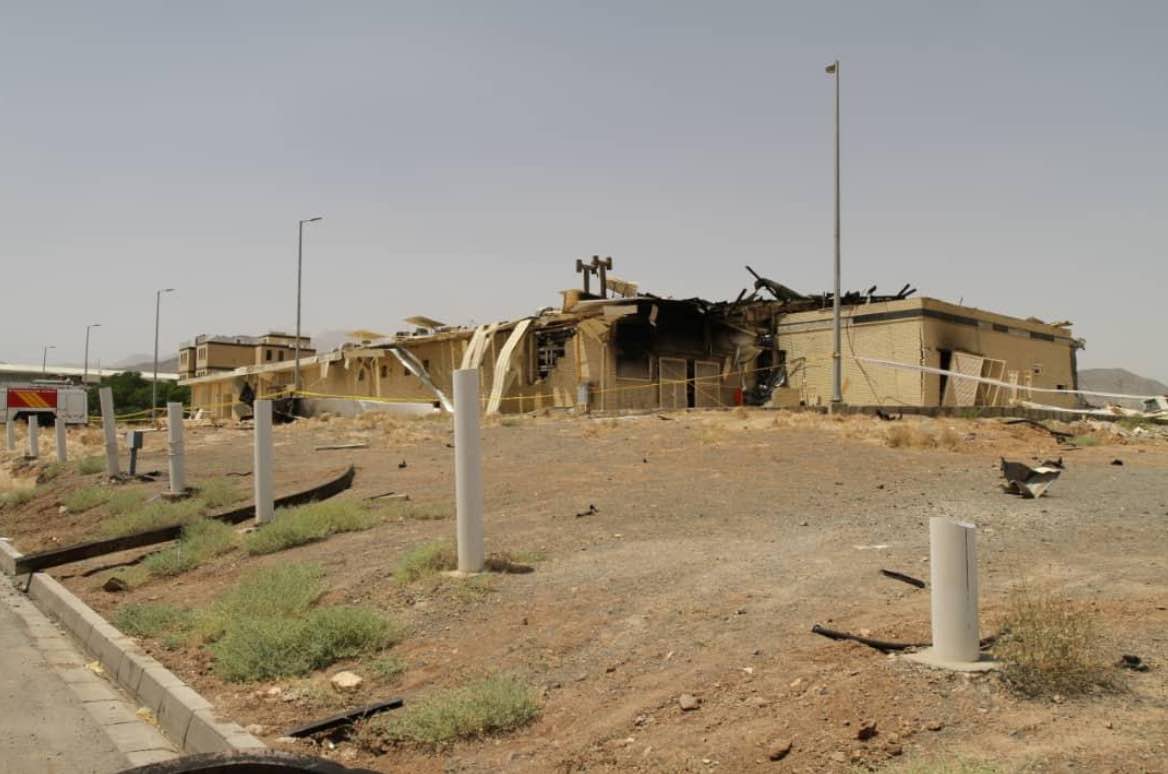A city governor in Iran’s Tehran Province has dismissed reports from social media and foreign outlets of explosions in the western part of the capital.
Referring to the widespread power outage and explosions, Governor of Shahr-e Qods, Leila Vaseqi, didn’t confirm “rumors” about any explosion in Shahr-e Qods and Garmadareh, which reportedly took place early Friday morning, saying that "the power outage also occurred in a limited area for five or six minutes, and power outages did not occur extensively," Iran’s Mehr news agency reported.
In an interview with the ISNA news agency, the director-general of the crisis management department of the Iranian Ministry of Energy, Meysam Jafarzadeh, also denied any blasts in electrical installations in Shahr-e Qods.
Meanwhile, the Islamic Republic of Iran Broadcasting (IRIB) reported that power was cut in the area of the city suburbs where the blast occurred. IRIB provided no further information about the cause of the blast or possible casualties.
Foreign media say there are at least two military installations in the area in question. According to Dubai-based Al-Arabiya News, the explosion happened in the vicinity of Islamic Revolutionary Guard Corps (IRGC) warehouses in Garmdareh, while a BBC correspondent noted the location appeared to be Imam Hasan Mojtaba base, an IRGC installation, however, these reports are unconfirmed.
On July 2, a large explosion occurred at Natanz nuclear complex in central Iran that produced nuclear centrifuges for refining uranium in the north of the province of Isfahan. The incident happened at a warehouse under construction at the complex, and caused significant damage, which could slow the production of centrifuges used to enrich uranium.
"There were no victims... but the damage is significant on a financial level," Iranian Atomic Energy Organisation spokesman Behrouz Kamalvandi told ISNA, adding that but caused no radioactive pollution as well.
Over the last few weeks, there have been several unexplained fires or blasts at sensitive sites in Iran, including explosions at a power plant in Ahwaz on 4 July, and a medical clinic in Tehran, which killed 19 people on 30 June. In addition, a blast was reported at a liquid fuel production facility for ballistic missiles in Khojir, close to the Parchin military complex, near Tehran on June 26.
Some Iranian officials suspect that some of these incidents might have resulted from Israeli sabotage or cyber-attacks, but have not openly assigned blame yet. Meanwhile, Israel has denied their involvement in the incidents while making statements.
“Not every incident that transpires in Iran necessarily has something to do with us,” Israeli Defense Minister Benny Gantz said on July 5. For his turn, Israeli Foreign Minister Gabi Ashkenazi said that in seeking to block Iran from developing a nuclear capability, “we take actions that are better left unsaid.”







 Azerbaijan and Armenia started the process of demarcation of their border on Tuesday, with the installation of the first border markers based on ge...
Azerbaijan and Armenia started the process of demarcation of their border on Tuesday, with the installation of the first border markers based on ge...
 President Aliyev emphasized the critical role of the North-South Transport Corridor in fostering transport cooperation between Azerbaijan and Russi...
President Aliyev emphasized the critical role of the North-South Transport Corridor in fostering transport cooperation between Azerbaijan and Russi...
 Armenian sappers commenced on Monday mine-clearance operations in the territories adjacent to the Saint Mary Church in village of Voskepar (Armenia...
Armenian sappers commenced on Monday mine-clearance operations in the territories adjacent to the Saint Mary Church in village of Voskepar (Armenia...
 Russian Foreign Minister Sergei Lavrov has reasserted that Moscow has no intentions to stop the fighting in Ukraine, even if peace talks commence.
Russian Foreign Minister Sergei Lavrov has reasserted that Moscow has no intentions to stop the fighting in Ukraine, even if peace talks commence.



